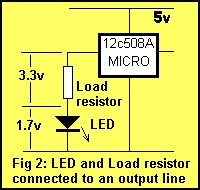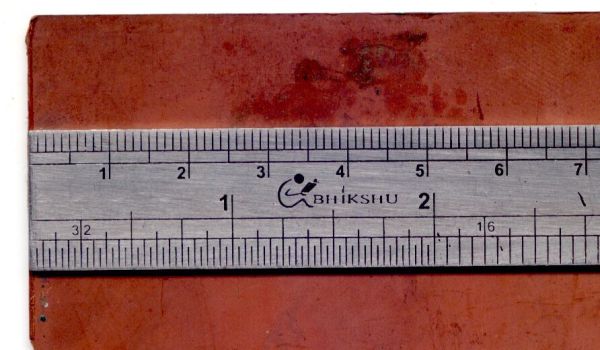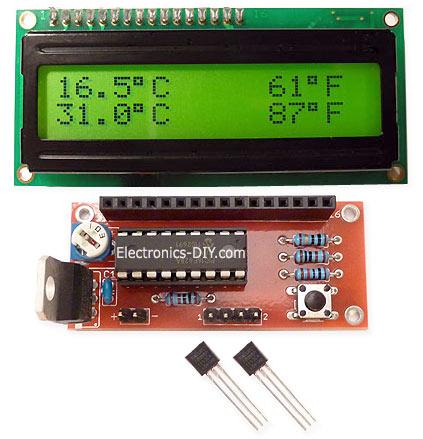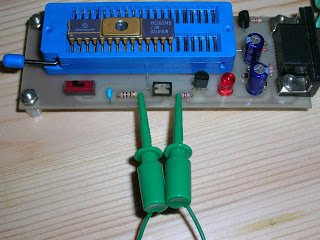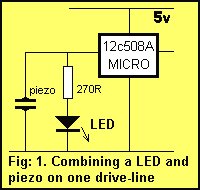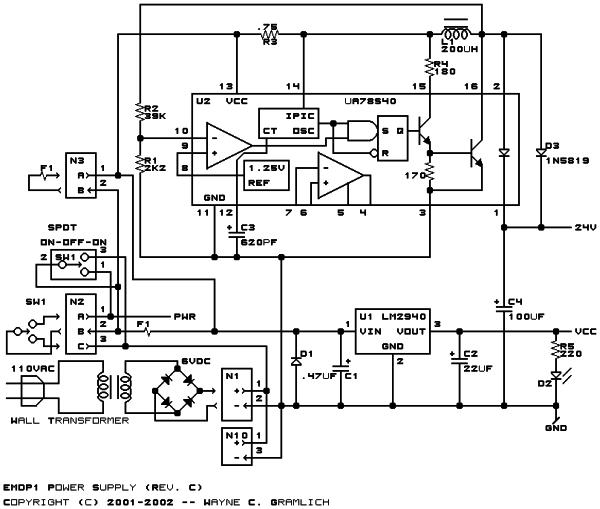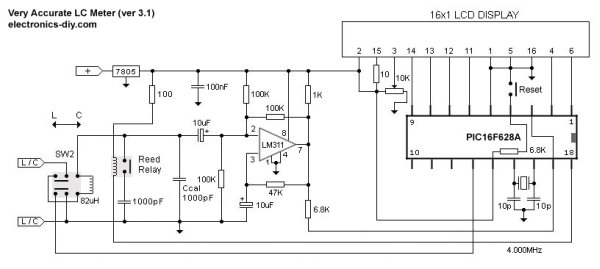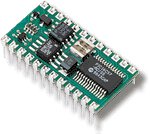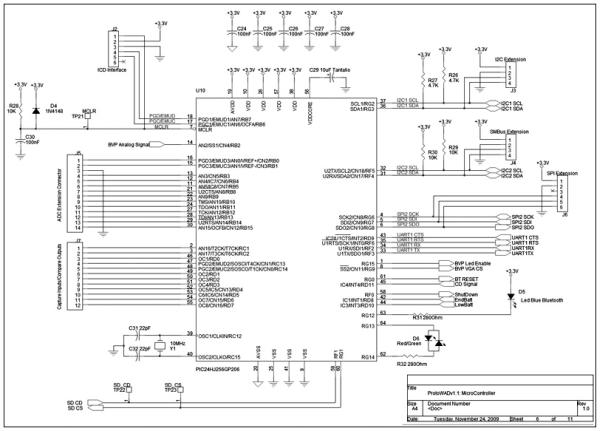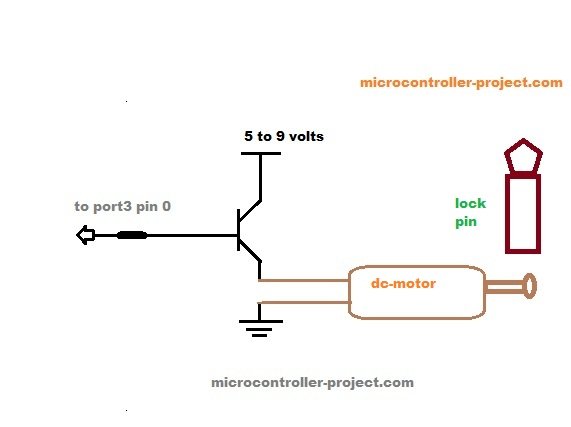Each of the output lines of a ‘508A microcontroller can deliver a maximum of 25mA. What does this mean? It means any device connected to the line must take 25mA or less. If it takes more than 25mA a buffer transistor (also called an amplifying transistor) must be used and this will be discussed in a […]
Projects
The Saltwater etch process using PIC16F54 microcontroller
The Saltwater etch process This is a one-off process to produce one printed circuit board by removing unwanted copper by electrolysis in a saltwater solution. I shall illustrate the process by etching and building a board for 18-pin PIC (for the PC16F54, but any 18 pin PIC will fit in it) in the figure. It […]
DS18S20 Dual Temperature Meter using pic microcontroller
DS18S20 Dual Temperature Meter Component List: 1x 2×16 LCD with Backlight 1x 16×1 LCD Female Header Connector 1x 16×1 LCD Male Header Connector 1x Programmed PIC16F628 2x DS18S20 1-Wire Digital Temperature Sensor 1x 100nF Capacitor 1x 10K Pot (LCD Contrast) 1x 10K Resistor 2x 1K Resistor 1x 10 Resistor 1x LM7805 Voltage Regulator 1x Tactile […]
Automatic door opener with PIC12C508 Circuit
Description This circuit can be used to operate an electric strike or an electromagnetic lock on a door. It is not the door being opened/closed, but a small electromagnetic strike which unlocks the door. The opener has the following features currently programmed in software: automatic operation when a guest pushes the doorbell, the strike is […]
10 tricks for interfacing to the PIC16C508
Most of the ideas in this chapter can be found on the pages of this website, but just in case you want to go over the capabilities of the ‘508A, we have brought them together. Quite often when you are programming, the first thing you will run out of is output lines. Many projects need […]
EMDP1 — Extensible Multiple Device Programmer 1 (Rev. C) using pic microcontroller
Table of Contents Table of Contents Introduction Schematics Printed Circuit Board Issues Introduction This is revision C of the EMDP1 mother board. It differs from revision B in that a 40-pin ZIF (zero insertion force) socket and an 80-pin `universal’ plug have been added. This allows many chips to be programmed without requiring an adaptor […]
Very Accurate LC Meter based on PIC16F628A
About Accurate LC Meter This is one of the most accurate and simplest LC inductance / capacitance Meters that one can find, yet one that you can easily build yourself. This LC Meter allows to measure incredibly small inductances starting from 10nH to 1000nH, 1uH to 1000uH, 1mH to 100mH and capacitance from 0.1pF up […]
DIY MIDI controllers using PIC microcontrollers and Basic Stamps using pic microcontoller
Introduction By combining a PIC microcontroller or Basic Stamp II with a few passive components it is not difficult to construct your own knob box, trigger box, or other MIDI input device. A knowledge of electronics may be required for interfacing to some sensors. Both the Stamp and PIC provide an economical (under US$100) entry […]
Talk:Wireless Affective Devices using pic microcontoller
Contents 1 Project aims 2 Previous work 3 Project the device 3.1 Re-definition of the complete work 3.2 Sensors Design 3.3 Microcontroller 3.4 Wireless Connection 4 Prototype realization [WIP (Work in Progress)] 4.1 Main board 4.2 USB interface 4.3 BVP 4.4 GSR 4.5 Acceleration 4.6 Temperature 5 Final review [WIP (Work in Progress)] 5.1 Microcontroller […]
Automatic door lock system using 8051(89c51,89c52) microcontroller
Automatic door locks are becoming popular in industry and many companies and industries are using automatic door locks systems for the safety of their rooms. They are popular in banks. Banks use automatic lock systems to keep security of their money stored in a single room. These automatic door lock systems are also used in […]

